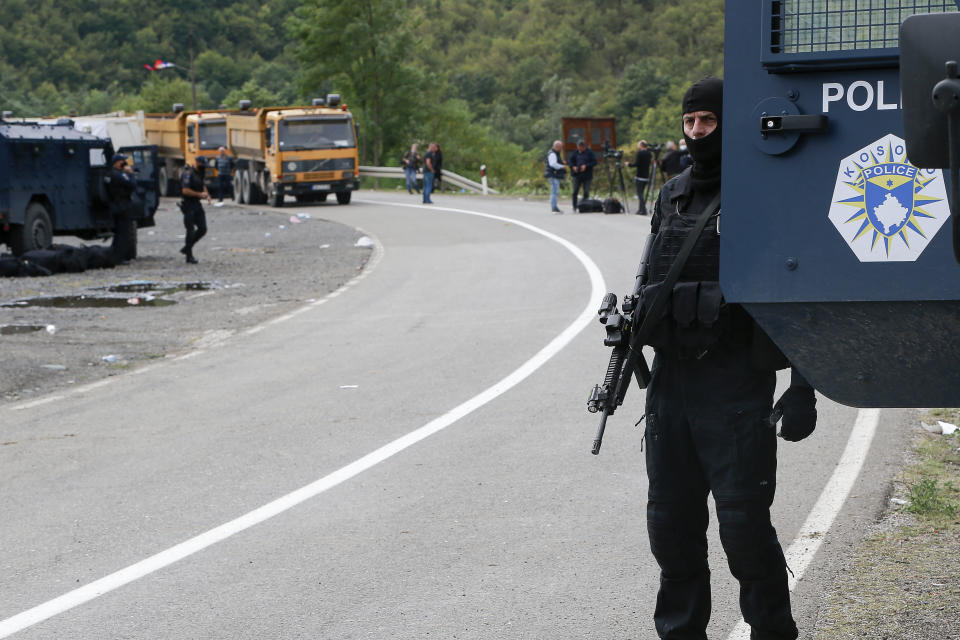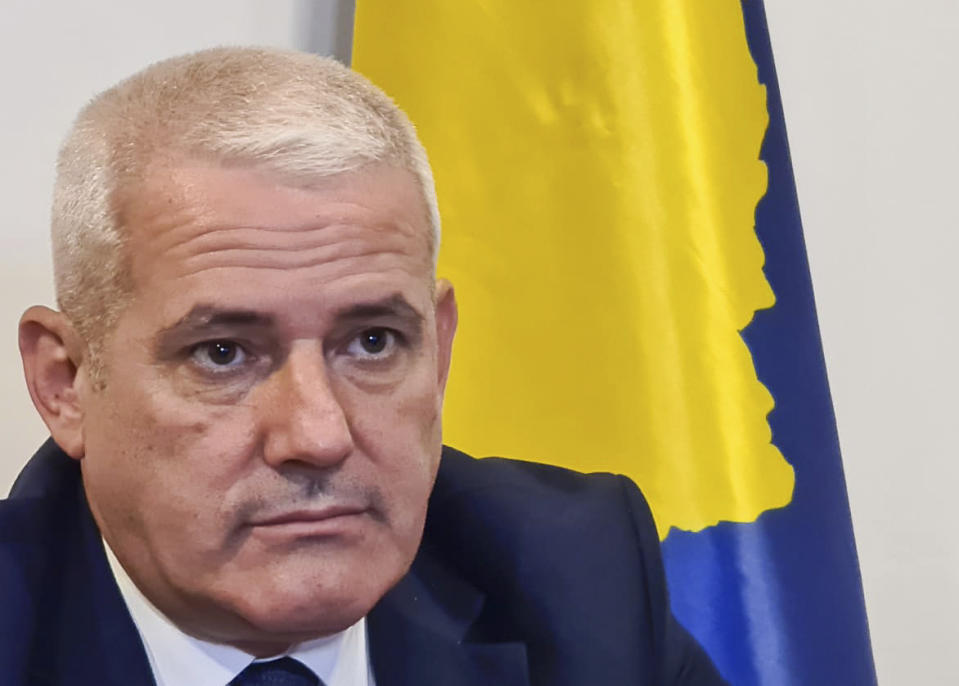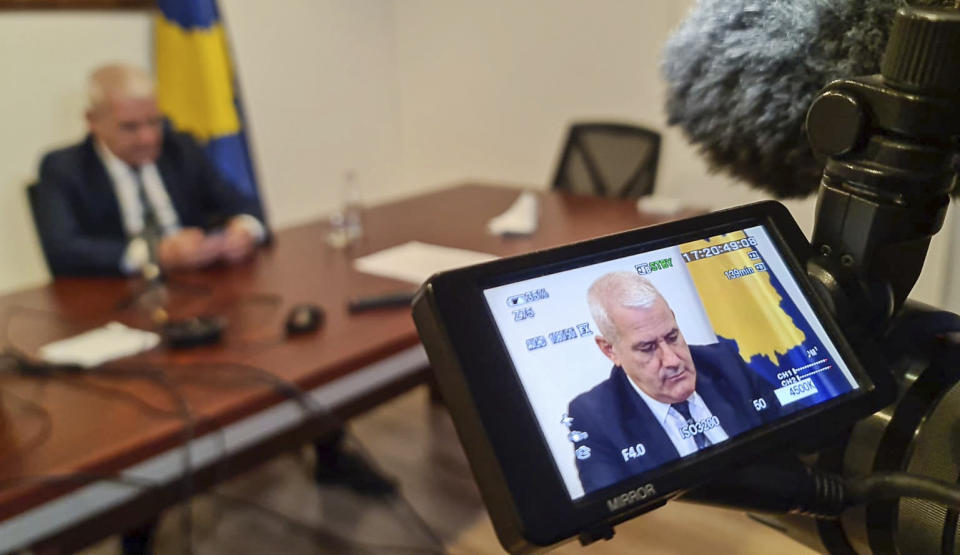Kosovo calls on Serbia to lower tensions, start dialogue
PRISTINA, Kosovo (AP) — The Kosovo-Serbia border was blocked for a third straight day on Wednesday by ethnic Serbs protesting a decision by Kosovo authorities to start removing Serbian license plates from cars entering the country.
Kosovo Prime Minister Albin Kurti called on Serbs to move vehicles away “because they are blocking themselves.” Small groups of Serbs spent the night in tents and they have blocked the roads to the Jarinje and Brnjak border crossings with trucks.
The recent incident has raised fears that it may unleash much deeper tensions between the two Balkan neighbors.
Serbia, which doesn’t recognize its former province of Kosovo as a separate nation, has for years been taking off registration plates from Kosovo-registered cars entering Serbia. Drivers need to pay five euros (nearly $6) for a 60-day temporary license plate.
Serbia considers its border with Kosovo as an “administrative” and temporary boundary.
Tensions soared Monday when Kosovo special police with armored vehicles were sent to the border to impose the same rule of temporarily replacing Serb license plates from cars while they drive in Kosovo.
Kosovo authorities said a 2016 deal with Serbia reached in European Union-mediated talks had expired and now only official Kosovo symbols are valid.
“Our offer is very practical, let’s lift the temporary plates, in Serbia and in Kosovo,” Kurti said at the government meeting.
“Neither our state or citizens nor Kosovar Serbs or Serbia are interested in incidents and escalation (of tension)," said Kurti, blaming Serb President Aleksandar Vucic as the "only one individual ... interested in that. We are for dialogue.”
Vucic on Tuesday described Kosovo’s car license plates decision as a “criminal action” and urged Pristina to withdraw all troops, "then we can go to Brussels and discuss everything and possibly reach an agreement.”
The EU-facilitated Kosovo-Serbia dialogue started in 2011 and has already reached more than 30 agreements, but few of them have been applied.
The EU and U.S. urged Kosovo and Serbia to “immediately, without any delay” exercise restraint and refrain from unilateral actions.
After the 1998-1999 bloody crackdown by Serbian troops against Kosovo Albanian separatists ended after NATO intervention, Kosovo declared independence in 2008. It has been recognized by the U.S. and other Western nations, but not by Serbia and its allies Russia and China.
Thousands of NATO-led peacekeepers, including U.S. troops, are still deployed in Kosovo, trying to stave off lingering ethnic tensions between majority Kosovo Albanians and Kosovo Serbs.
___
Llazar Semini reported from Tirana, Albania.

 Yahoo Movies
Yahoo Movies 








